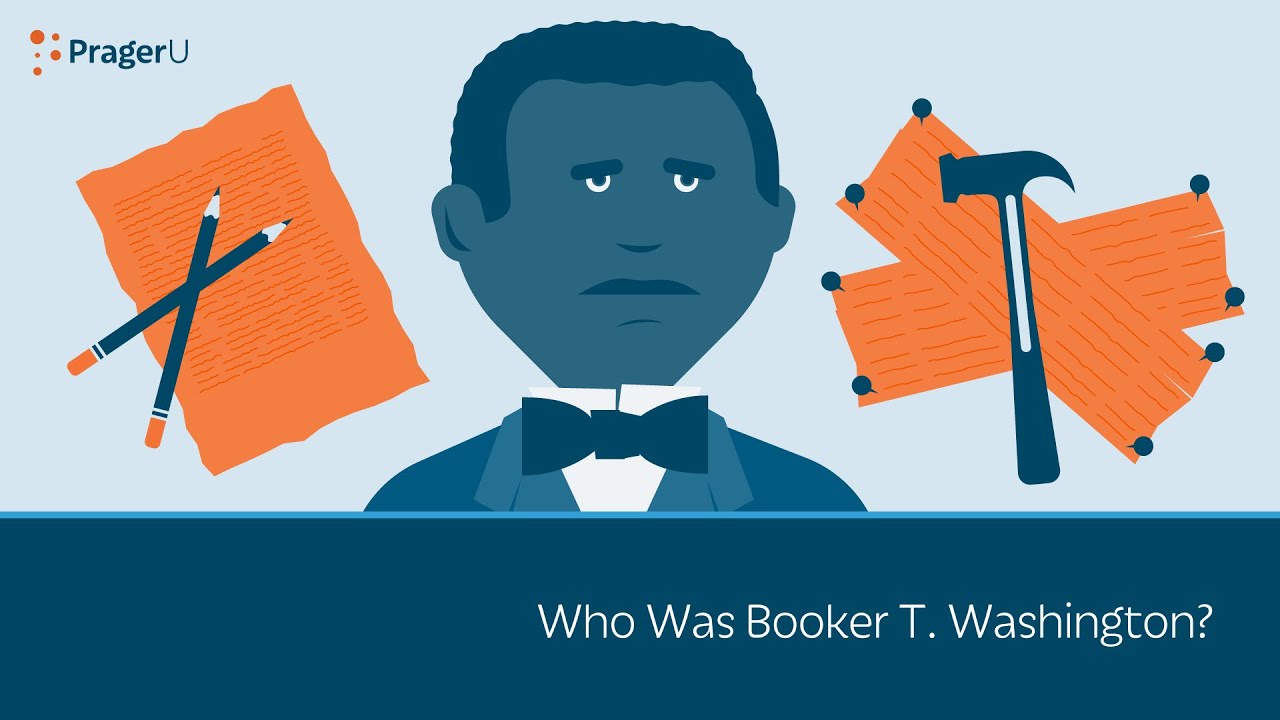
Who Is Booker T. Washington?
In the years following the Civil War, Booker T. Washington devoted his life to helping blacks transition out of slavery and into freedom. While his ideas were never fully embraced in his time, today, more than a century later, they remain strikingly relevant. Derryck Green from Project 21 explains.
FOLLOW us!
Facebook: 👉https://www.facebook.com/prageru
Twitter: 👉https://twitter.com/prageru
Instagram: 👉https://instagram.com/prageru/
SUBSCRIBE so you never miss a new video! 👉https://www.prageru.com/join/
To view the script, sources, quiz, visit https://www.prageru.com/video/who-is-booker-t-washington
Join PragerU’s text list to have these videos, free merchandise giveaways and breaking announcements sent directly to your phone! https://optin.mobiniti.com/prageru
Do you shop on Amazon? Click https://smile.amazon.com and a percentage of every Amazon purchase will be donated to PragerU. Same great products. Same low price. Shopping made meaningful.
SHOP!
Love PragerU? Now you can wear PragerU merchandise! Visit our store today! https://shop.prageru.com/
JOIN PragerFORCE!
For Students: http://l.prageru.com/2aozfkP
JOIN our Educators Network! http://l.prageru.com/2aoz2y9
Script:
There have been many influential black leaders since the Civil War. They include Frederick Douglass, W.E.B. Du Bois and, of course, Martin Luther King.
But none had more influence in their time than Booker T. Washington did in his.
Known by his admirers as the “Modern Moses,” his role in helping blacks establish themselves after their liberation from slavery is a testament to the man and to America.
Booker T. Washington was born into slavery in 1856. He did not know the day or month of his birth, who his father was, or his last name. As a child, he was known only as Booker. He chose the name Washington.
He was nine years old when a Union soldier arrived on the plantation and announced that all slaves were free. The initial reaction to this announcement, Washington recalled, was elation and then…shock.
Yes, the Civil War was over; they were free. But free to do what?
The freed slaves, through no fault of their own, were simply unprepared for freedom. They needed to learn not only basic academic skills—reading, writing and arithmetic—but basic life skills like hygiene: how and why to bathe and brush their teeth.
The cause to which Washington dedicated his life was education. Practical education.
His journey began in 1872, seven years after the Civil War ended. He traveled 500 miles, most of it on foot, to a small Virginia school dedicated to the education of freed blacks, the Hampton Normal and Agricultural Institute.
Forced to spend all his meager funds on the grueling journey, he arrived only with the clothes on his back. The headmistress viewed his suitability as a student with open skepticism, but he wouldn’t budge. She finally gave him a chance to prove his worth in the form of a broom and a cleaning assignment. He passed her test and earned admission. He graduated with top honors.
Several years later, he was invited to begin what would become his life’s work, heading the Tuskegee Institute in Alabama. When he arrived, he assumed he’d walk onto a campus. But there was no campus—only a few shacks and a chicken coop. The school had almost no money. But it did have 30 eager students. And for Booker T. Washington, that was enough.
Under his leadership, they got to work. Every building, every desk, was built by the students themselves—brick by brick, piece by piece. This tied in perfectly with Washington’s philosophy of a practical education: students at Tuskegee, in addition to academic studies, had to master a trade.
He believed this led not only to racial uplift among blacks but to respect for blacks. His graduates would go out into the world with sought-after skills. They would be useful to their neighbors and become invaluable members of their communities.
“The individual who can do something that the world wants done,” Washington said, “will, in the end, make his way regardless of race.”
Washington distilled his philosophy into what became one of the most important speeches of the late 19th century, an address he delivered at the Atlanta Exposition in 1895. His theme was that blacks needed time to develop educationally and economically. Whites, Washington suggested, should help them in every way possible. This would be in the best interests of both races.
He also emphasized that blacks needed to recognize that social equality would not come swiftly. It could not be forced through political action alone. The civil rights the Constitution promised would evolve naturally from black achievement.
As he put it: “No race that has anything to contribute to the markets of the world is long in any degree ostracized.”
For the complete script, visit https://www.prageru.com/video/who-is-booker-t-washington
source





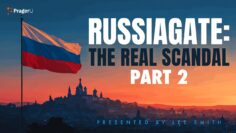
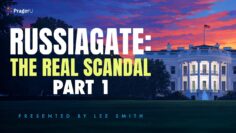
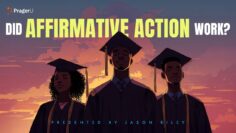

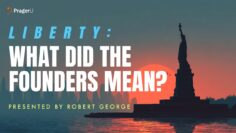
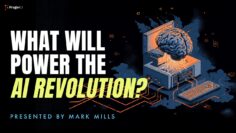
Be the change you want to see. I hope for a more openly democratic world, more involved in politics.
https://youtu.be/kNsQQQu1YjU
He didn't vote for Joe Biden, thats for sure.
umm… He told African Americans not to stand up for their rights.
Excellent video.
No mention of Malcom X? Lol
…why is this unlisted?
This was well done. I wish his vision had come true.
People should make this a movie
Before watching this, I had heard his name, but not his story. Thanks for sharing, this is important American history.
https://www.youtube.com/watch?v=u1ovUbSZcXQ
Booker T. Washington goes in that category of history that "I learned from historical sites and not school." Dad and I did a lot of road trips and stopped at national parks and historic sites alike.
I remember at age 11 drawing a picture of Booker T. Washington in Art class for Black History Month. The teacher gave us a list to pick from and I chose him. I liked his story. I took myself very seriously as an artist, and I was sad that I couldn't get the picture to look good enough.😅 I'm sure he would have liked the picture anyway.
truly a great american.
Thanks for the video 👍🏾👍🏾
When Washington told Black people to "cast your bucket where you are," he expected "The Southern white man" to give Black people "water, water, water," in return. All of y'all forgot that part! But y'all want to tell Black folk about "personal responsibility," and, then and now, misinterpret Washington's speech as an entire, so-called "bootstrap" argument! And when Washington said "separate as the fingers, yet one as the hand in all things essential to mutual progress," that, too, was thought to be a license for the inherently unequal "separate but equal." "The Southern white man" did anything but help Black folk. Now, in 2020, Prager engages in the same misinterpretation of Washington's speech, to dismiss the activist side of Black folk, like folk did DuBois, back then; and, over the years, wrongly put both Washington and DuBois as adversaries.
BLM would not know anything about this.
I wonder how many blacks people know about Booker T Washington? Too bad most of the lefties or progressives want to destroy histories with their cancel culture! Very sad!!!!
You hustle for better no matter where you start from. I truly, deeply believe that and have lived that. I say this as the first black girl valedictorian at my high school, “most likely to succeed”, an engineer, and someone who’s followed the Dave Ramsey steps (shoutout to Uncle Dave😉) to move from $20k+ in debt (including student loans) to debt free with an emergency fund and a mortgage down payment being rounded out. Hustling is fun for me!
However, that doesn’t mean you ignore the inequalities that are there. You for sure grind in the meantime (I work hard to instill those ideas in the people around me, mentoring folks and teaching about financial literacy), but we can still work to fix the systems that will make it inequitably harder for socioeconomically disadvantaged people of all kinds. For me, the main place I want to see equitability is in education. Suuch a huge key!! I honestly don’t even ask for much else besides that (even though it can be argued that these systems have unjustly stripped many people of prior potentials to build generational wealth due to Jim Crow-mandated segregation being so recent that my parents did much of their primary schooling legislatively segregated). And much of the segregation we fought to end lives on residually (“black schools” is still a term for a reason) These schools are historically underfunded and underserved. The notion of “separate but equal” from Jim Crow, is still “not so equal”.
I like that feeling of accomplishment when you achieve things on your own regard. When you fight for it tooth and nail!:) I just want to see our children get relatively equitable educational bases so they can be as well set up for carrying the future of our country forward as possible. You don’t have to choose to support one or the other. We really can do both.
Really enjoyed this video and the ideas discussed!:)
Booker T. Washington was revolutionary but he also had a limited outlook on how much African Americans needed to push this country into fair and equal treatment. Which is why Dubois retracted his earlier praise of Washington’s mission. Washington was willing to see African Americans put their opportunity to voting rights and otter civil rights.
The 5 times wcw champion